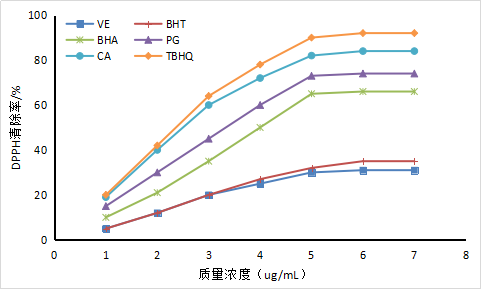Rosemary is a common shrub in the genus Rosemary of the Lamiaceae family that has been used for thousands of years as a savory spice, food preservation, antioxidant, cosmetic and hair care, and as a therapeutic Herbal medicine for diseases. In the field of pet food, hundreds of papers and studies have confirmed that rosemary has a wide range of antioxidant capabilities, and its main active substances are carnosic acid and carnosol, and rosemary extracts are generally used as pet food Preservatives and antioxidants.
Prevents Oxidation And Rancidity
Rosemary extract is a natural antioxidant, commonly used in the pet food industry to prevent oxidation and rancidity of pet food, help to maintain the freshness and quality of pet food for a long time, improve the nutritional value of pet food and extend its shelf life , Reduce pet food waste and improve pet food health.
Additionally, rosemary extract is a natural alternative to synthetic antioxidants such as BHA and BHT, which may be associated with potential health risks. Studies by Xia Tianjuan et al. have shown that the antioxidant activity of carnosic acid at the same concentration is significantly higher than that of synthetic antioxidants PG, BHT, BHA, and VE, and slightly lower than that of TBHQ; The IC50 value is 51.58μg/mL. [1]

Scavenging effect of carnosic acid on DPPH free radicals
Data source: Xia Tianjuan, Bi Liangwu, Zhao Zhendong, Xing Yali, Cheng Xian. Antioxidant and Antibacterial Activities of Carnosic Acid
Enhance Pet Food Flavor And Palatability
In addition to its preservative properties, rosemary extract is used to enhance the flavor of pet food and improve palatability. The taste of pet food is critical to encouraging cats and dogs to eat and maintain a healthy appetite. In general, cats and dogs have sharper taste buds and a keener sense of smell than humans, which largely affects their food preferences. Studies have shown that rosemary extract has a positive effect on the taste and palatability of cat food. Natural compounds in rosemary extract, such as rosmarinic acid and essential oils, give it its unique aroma and flavor. These compounds not only stimulate appetite, but also enhance the cat's overall sensory experience, making meals more enjoyable for them. In a controlled experiment, cats were given two foods—one containing and one without rosemary extract. Cats consistently showed a preference for foods containing rosemary extract, suggesting a palatability-enhancing effect.
Other Benefits
Although rosemary extract has been used as a pet food preservative antioxidant for many years, it is certain that it can also provide many health benefits as a nutritional supplement. Studies have shown that rosemary extract has several potential health benefits for pets, such as anti-inflammatory and antibacterial properties, which can help prevent and treat infections and diseases. Yanagitai M et al [2] have shown that carnosic acid can exert both In addition, it can inhibit the activation of mouse astrocyte line MG6 cells and the expression and release of inflammatory factors IL-1β and IL-6 induced by LPS in vitro by inducing the genes of phase II metabolic enzymes, thus playing an anti-inflammatory role. effect; it may also help improve digestion and boost immune function for your pet's overall health.
Rosemary extract is a valuable ingredient in pet food formulation solutions, providing a natural and effective solution for preserving pet food, enhancing its nutritional value and flavor, and is ideal for pet owners who are concerned about the health of their pets.
references
[1] Xia Tianjuan, Bi Liangwu, Zhao Zhendong, Xing Yali, Cheng Xian. Study on the Antioxidative Activity and Antibacterial Activity of Carnosic Acid [J]. Natural Product Research and Development, 2015,27(01):35-40.
[2]Yanagital M, Itoh s, Kitagawa T, et al. Carnosic acid, a pro-electrophilic compound, inhibits Lps-induced activation of microglia[J].Biochem Biophys Res Commun, 2012, 418(1):22-26 .